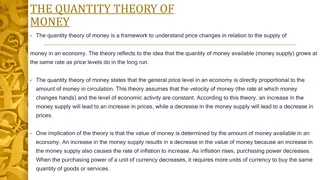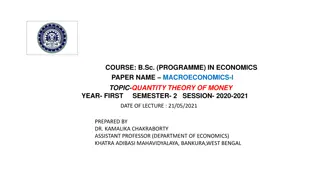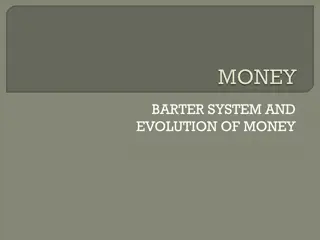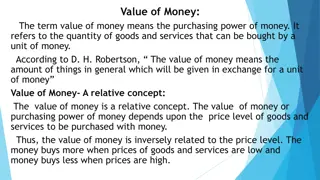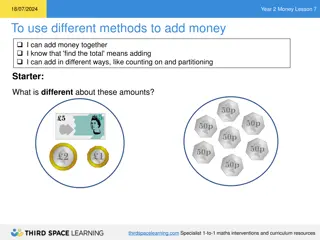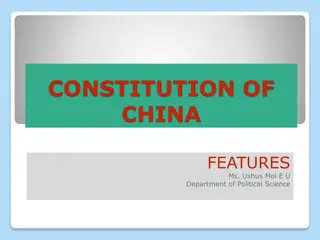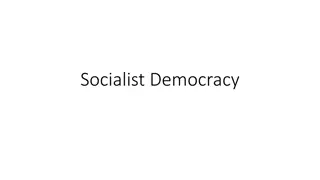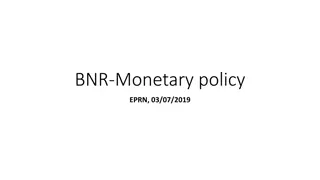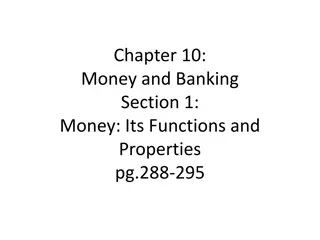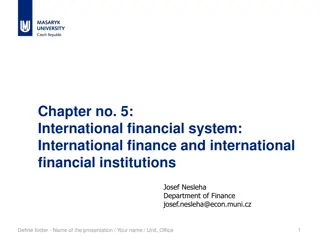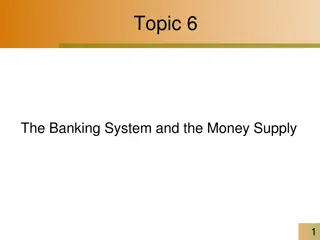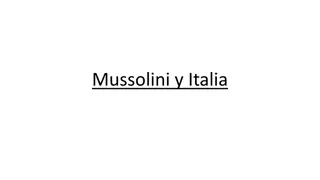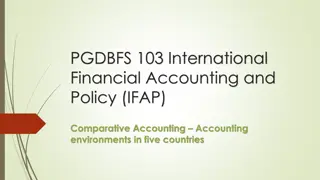Role of Money in a Socialist Economy
Money in a socialist economy serves various essential functions such as a measure of value, medium of circulation, means of payment, accumulation, and distribution, along with providing monetary incentives and freedom of choice to individuals. It plays a crucial role in evaluating economic activity and controlling socialist enterprises efficiently.
Download Presentation

Please find below an Image/Link to download the presentation.
The content on the website is provided AS IS for your information and personal use only. It may not be sold, licensed, or shared on other websites without obtaining consent from the author.If you encounter any issues during the download, it is possible that the publisher has removed the file from their server.
You are allowed to download the files provided on this website for personal or commercial use, subject to the condition that they are used lawfully. All files are the property of their respective owners.
The content on the website is provided AS IS for your information and personal use only. It may not be sold, licensed, or shared on other websites without obtaining consent from the author.
E N D
Presentation Transcript
Importance of money in a socialist economy Measure of Value: The value of all products and services is expressed in terms of money. Thus, money acts as the measure of socially necessary labour embodied in commodities. Medium of Circulation: In a socialist society, money performs the function of circulation. All buying and selling is done through money. As distinct from capitalism, under socialism, money in its function as a medium of circulation does not create crisis of overproduction because of the planned nature of commodity and money circulation. The process of circulation, in a socialist economy, serves as an important form of checking how far planned production corresponds to the needs of society.
Means of Payments: All payments, which do not involve buying and selling of commodities, are made through money. For example, money provides the means of payment when wages are paid to the workers, when enterprises receive or pay back loans, when cash income is distributed among collective farm workers. Means of Accumulation: Under socialism, money functions as the medium of saving and of the formation of cash reserves. Working people keep their saving in the form of deposits in the banks. These savings are used by the state to expand production, lay up reserves and provide credit for other enterprises and organisations.
Instrument of Distribution: Money, under socialism, serves as the instrument of distribution. The working people receive a share of the national product in terms of money according to their quantity and quality of labour they expended. Monetary Incentives: In addition to basic wage rate, bonuses are paid to the workers in terms of money in order to induce them to work more. These bonuses help in motivating people to put in extra effort for extra gain.
Freedom of Choice: The individuals have the freedom to spend their money earning on any consumption goods of their choice. The freedom of choice is, however, restricted to the range of goods produced under the plan. Evaluating Economic Activity: Money helps the state to evaluate the economic activity of an enterprise. Although the pricing system does not influence the basic economic decisions, it helps in the rational allocation of resources by determining opportunity cost. And all opportunity cost calculations are made in terms of money. Control of the operation of socialist enterprises through money is the most flexible method of controlling the economy


